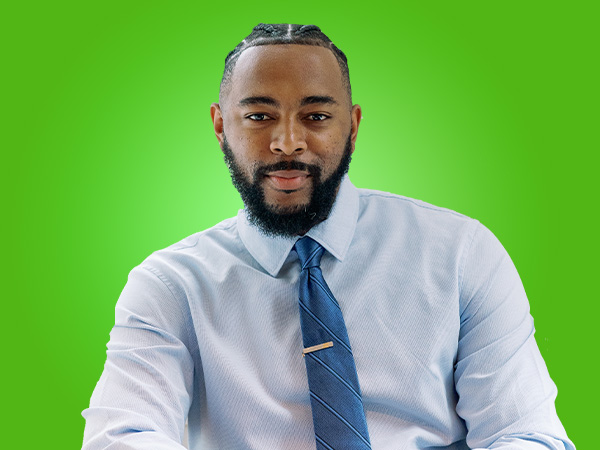Last week I sat down with Nicholas Leach, the Digital/Social Director here at Pulsar, to talk about recent and approaching privacy changes from the major social media and digital platforms and what they mean for us as digital marketers. Here’s a bit of our conversation:
Susan: Hey, Nick. Thanks for taking a minute to talk to me today about what’s shifting these days in digital/social. It’s been a year of big changes for everyone, and online marketers are no exception. We use platforms to get our messages out. Some users game the algorithms that affect who these messages reach and how, so platforms try to stop fraud by changing their rules. Then slowly but surely the fraudsters find new loopholes, and we start the cycle again. I just read this article about how Google is making some big updates, right on the heels of similar moves from Apple and Facebook. The changes happening right now feel bigger than our usual updates, right?
Nick: Hey, Susan! It’s always something…but you’re absolutely right, this feels much bigger than the usual changes we see and hear about in the social/digital landscape on a day-to-day basis. When Google says something, the world pays attention. The shift toward an internet that places more importance on user privacy and data protection is well and truly here – it’s happening right in front of us. This recent announcement is a clear sign of it.
I think this entire discussion comes down to ad targeting precision vs. user privacy. You can’t have both at 100% because they’re almost diametrically opposed, so we have to find the right balance for everyone…which is another essentially impossible task because everyone has different objectives and opinions. Google, Apple and Facebook all have different answers. Our media partners have additional perspectives, and my own thoughts depend on whether I’m thinking about this as a Digital/Social Director or as an individual user. As someone who works in this field, I love the ability to efficiently get our message out to the right people, but as a user I want as much privacy and protection as I can get. Whatever shape you can think of with the most sides to it, this discussion has many more.
Susan: What are you excited about as an individual here?
Nick: This is definitely leaning more into user privacy over ad targeting precision, which from a user perspective is a good thing I’d say. While I’ve never had any serious personal issues within the current setup of online advertising, I remember when I was ring shopping for my fiancée and there were engagement ring ads on every single website for the next month or so. Hiding those ads to keep it a surprise was certainly a hassle, so I look forward to hopefully being able to surprise her a little bit more easily moving forward.
Susan: Ha! We’ve all been creeped out by responsive ads at some point, but that really is a buzzkill. So when we think about how this will be more private, what does this mean for us going forward as marketers? We’re trying to get people to consider what’s good for them and good for their communities – and sometimes user data helps us reach the right people at the right time.
Nick: Rather than replacing the third-party cookies that track our web activity from site to site, Google is moving forward with testing and developing new technologies for ad targeting. Specifically, these new technologies won’t collect information from users across multiple websites as the third-party cookies have.
There have been some questions surrounding motivations as this shift means first-party user data will become even more valuable…and Google certainly isn’t lacking in that arena. I think the skepticism is understandable, but my guess is that Google’s approach likely has more to do with ongoing regulatory discussions than private motivations.
Susan: I’d say that’s a good guess. As we’re talking with clients about their work in this changing climate – where this is just the latest shake of the snow globe in the last chaotic year – what are the biggest considerations for them as we’re working to get their messages out?
Nick: I think we’re still very much at a wait-and-see stage, but I would advise clients that it seems fairly certain that our targeting will become less precise. Also, there will be more questions than there are answers…so, my apologies in advance for being “not sure” and needing to “look into it” more than usual.
While things are changing and there will be less precision, there’s simply too much money in digital ads for them to simply disappear or be rendered ineffective. Digital ads will continue to be a viable marketing/advertising channel and worth allocating budget toward. The way things move forward will determine how much of a client’s ad budget should go toward it, along with the usual factors such as target audience, campaign messaging, timeliness, etc.
Every client and campaign is unique and should be treated as such…I don’t think this shift in the landscape will change that.
Overall, It’s an interesting move that has been met with a variety of responses. Like any major shift, there are positives and negatives, and more questions than answers at this point. Your role in this digital ecosystem likely determines how you feel about it. I like to focus on things I can directly affect, and what Google, Apple, Facebook or any other major company does falls outside of that. So in my eyes, it’s a challenge for us, our clients and anyone advertising online.
Susan: What’s your takeaway here, Nick?
Nick: Honestly, I’m excited about this shift. Every shift creates space and a need for innovation, which is essentially a challenge we all have to meet in one way or another. That excites me because oftentimes, our greatest work is produced when we’re challenged.
Susan: Well, I’ll gladly take that glass-half-full approach here! We’ve certainly been challenged in the last year, but I appreciate your talking this through with me.
Nick: Happy to.





